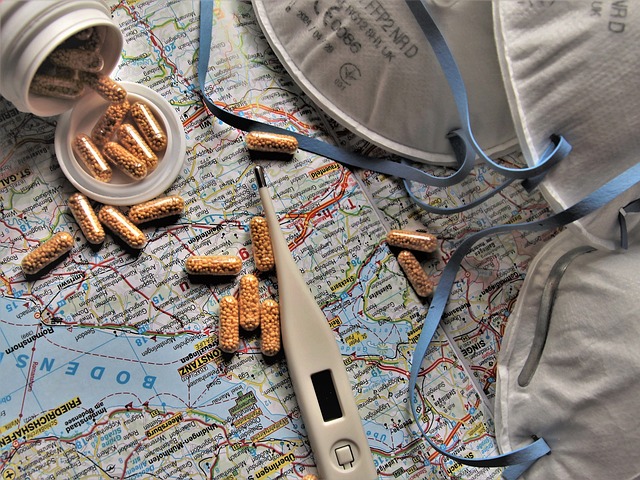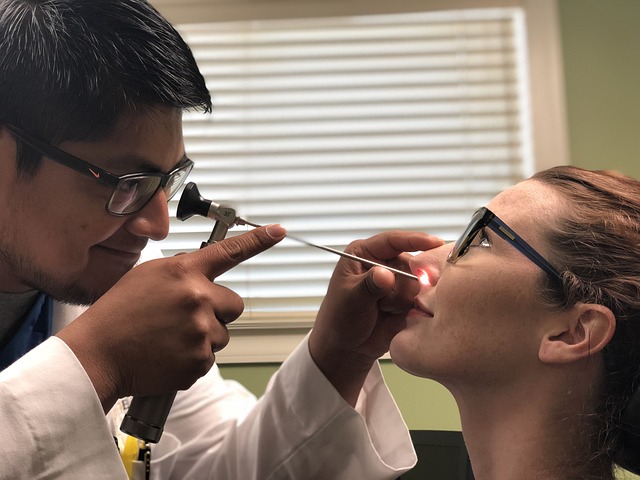Take a Quiz on Antibiotics
Disclaimer: This posting should not be used as providing medical advice or on what medications to use to treat any illnesses. Rather, this posting is provided for educational purposes only. For medical advice on the application of antibiotics or the use of any medications, consult a doctor.
Introduction
Antibiotics have become an essential tool in modern medicine, with applications ranging from routine infections to emergency situations. For those preparing for emergencies, having a solid understanding of the different antibiotics available is crucial for ensuring proper medical care when professional help might be delayed.
In this posting, we’ll explore the most common antibiotics found in emergency medical kits, discuss their uses, and offer deeper insights into the world of antibiotics.
What Are Antibiotics?
Antibiotics are drugs used to treat bacterial infections. They work by either killing the bacteria directly or inhibiting their ability to grow and reproduce. There are different classes of antibiotics, each targeting specific types of bacteria. This makes it important to use the right antibiotic for the right infection to avoid antibiotic resistance.
For emergency preppers, having a variety of antibiotics in a medical kit ensures that they are prepared for a range of bacterial infections, from skin wounds to respiratory infections. However, antibiotics are not effective against viral infections like the flu or the common cold.
Azithromycin: The Respiratory Infection Fighter

Common Uses:
- Bacterial pneumonia
- Bronchitis
- Sinus infections
- Ear infections
- Sexually transmitted infections (STIs) like chlamydia and gonorrhea
Azithromycin, a macrolide antibiotic, is often the go-to medication for respiratory infections. It is especially effective in treating conditions like bacterial pneumonia and bronchitis, making it an important antibiotic for those preparing for emergencies where respiratory infections could spread.
Its unique ability to work against both common respiratory infections and certain STIs makes it a versatile tool in any emergency medical kit.
Why It’s Important for Preppers: Azithromycin’s broad spectrum of use, especially for infections that may arise in unsanitary conditions, makes it an essential antibiotic for long-term preparedness. Its oral formulation allows for easy storage and administration.
Ciprofloxacin: The Powerhouse for Urinary Tract and Traveler’s Infections

Common Uses:
- Urinary tract infections (UTIs)
- Bacterial diarrhea (traveler’s diarrhea)
- Skin infections
- Bone and joint infections
- Anthrax post-exposure prophylaxis
Ciprofloxacin is a fluoroquinolone antibiotic that is known for its effectiveness against gram-negative bacteria, particularly in UTIs. This makes it invaluable for treating one of the most common bacterial infections encountered in emergencies: urinary tract infections.
In addition to UTIs, ciprofloxacin is used to treat traveler’s diarrhea, which can result from unsanitary food or water consumption in disaster scenarios. For preppers, having ciprofloxacin on hand ensures the ability to combat potentially serious bacterial infections that could worsen if left untreated.
Why It’s Important for Preppers: Ciprofloxacin’s wide range of applications and its ability to treat anthrax exposure add another layer of protection in bioterrorism scenarios. This makes it a critical drug to have for both medical and disaster-related emergencies.
Cephalexin: The Skin Infection Specialist

Common Uses:
- Skin infections (cellulitis, impetigo)
- Bone infections
- Respiratory infections
- Urinary tract infections
Cephalexin, a first-generation cephalosporin, is often the preferred treatment for bacterial skin infections like cellulitis. It is also effective against certain respiratory infections and UTIs, although it’s most renowned for its effectiveness in treating skin and soft tissue infections.
For preppers, the ability to treat skin infections is vital. Whether from wounds, bug bites, or poor hygiene, skin infections can escalate quickly in off-grid scenarios.
Why It’s Important for Preppers: The importance of cephalexin lies in its ability to address skin infections that could otherwise lead to serious complications, including sepsis. Having cephalexin in a medical kit ensures prompt treatment of skin-related issues before they become life-threatening.
Doxycycline: Versatile and Long-Lasting

Common Uses:
- Lyme disease
- Malaria prevention
- Respiratory infections like bronchitis
- Skin infections (including MRSA)
- Cholera
Doxycycline is a tetracycline antibiotic that stands out for its wide range of uses. Not only is it effective against Lyme disease and MRSA infections, but it is also used in the prevention of malaria, making it a vital drug for those traveling or living in regions with endemic malaria.
Another important use of doxycycline is in the treatment of bacterial respiratory infections like bronchitis, and it’s also effective against cholera, which can spread rapidly in disaster situations involving contaminated water.
Why It’s Important for Preppers: Doxycycline’s ability to treat infections ranging from tick-borne diseases like Lyme to bacterial outbreaks like cholera makes it a must-have for long-term survival scenarios. Additionally, its long shelf life and oral administration make it easy to store and use.
Metronidazole: The Antiprotozoal and Anaerobic Bacteria Fighter

Common Uses:
- Bacterial vaginosis
- Gastrointestinal infections (diverticulitis, giardiasis)
- Infections caused by anaerobic bacteria
Metronidazole is an antibiotic that stands out for its ability to treat infections caused by anaerobic bacteria, which thrive in low-oxygen environments like the gastrointestinal tract. It is particularly effective in treating conditions like bacterial vaginosis and gastrointestinal infections caused by protozoa, such as giardiasis.
For preppers, the ability to treat gastrointestinal infections is critical, especially in situations where clean water and food are scarce. Poor sanitation can lead to a host of GI issues, making metronidazole a valuable part of any medical kit.
Why It’s Important for Preppers: In a survival situation, gastrointestinal infections can spread quickly. Metronidazole offers a line of defense against some of the most common and dangerous anaerobic bacterial infections, making it a key component in preparedness medicine.
Amoxicillin: The Household Staple for Common Bacterial Infections

Common Uses:
- Strep throat
- Ear infections
- Sinus infections
- Dental abscesses
Amoxicillin, a penicillin-based antibiotic, is one of the most commonly prescribed drugs for everyday bacterial infections. Its effectiveness in treating conditions like strep throat and ear infections makes it a household name, but it’s also invaluable for emergency medical kits.
Amoxicillin is particularly important for preppers due to its role in treating dental infections. Dental care can be difficult in survival situations, and untreated abscesses can lead to severe complications.
Why It’s Important for Preppers: Amoxicillin’s widespread use and effectiveness in treating common bacterial infections make it an essential part of any medical kit. Its ability to address dental abscesses, which can be life-threatening if untreated, adds another layer of protection for survival scenarios.
Addressing Antibiotic Resistance

One of the growing concerns in modern medicine is antibiotic resistance, which occurs when bacteria evolve and develop the ability to withstand the drugs designed to kill them. Misuse and overuse of antibiotics are the leading causes of this resistance.
For preppers, it is important to understand that antibiotics should only be used when absolutely necessary and in the correct dosages to prevent the rise of resistant bacteria. Rotating the use of different antibiotics when necessary and ensuring complete courses of treatment are critical steps to avoid fostering resistance.
Storing and Using Antibiotics Safely

Antibiotics require careful storage to maintain their potency over time. Most antibiotics should be stored in a cool, dry place, away from direct sunlight and moisture. Some may require refrigeration, and it’s essential to follow the manufacturer’s guidelines to extend shelf life.
Preppers should also be familiar with the proper dosages and uses of each antibiotic in their kit. Misusing antibiotics can result in ineffective treatment, side effects, or even antibiotic resistance. It is always wise to consult a medical professional when possible and have medical guides on hand for reference.
Conclusion: Antibiotics as a Lifeline in Emergency Situations

Antibiotics are a crucial part of any emergency medical kit, offering the ability to treat bacterial infections that could become life-threatening if not addressed promptly. Understanding the various types of antibiotics, their uses, and their limitations allows preppers to make informed decisions when stocking and using these medications in off-grid or emergency situations.
Preparedness isn’t just about having the right tools—it’s about having the knowledge to use them effectively. When it comes to antibiotics, being informed and prepared can make all the difference in survival situations.


This is a really good posting on antibiotics and what antibiotic to use for different illnesses.